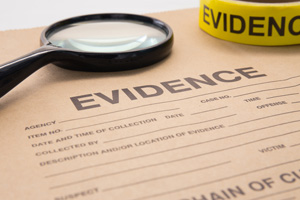Corporate defense lawyers support federal rule changes said to help prevent 'junk' scientific testimony

Image from Shutterstock.
Lawyers defending companies involved in mass tort litigation on Friday supported federal rule changes they think will help prevent the introduction of “junk” scientific testimony at trials, according to coverage by Reuters.
The lawyers testified in support of changes to Rule 702 of the Federal Rules of Evidence during a virtual hearing, according to Reuters.
The Federalist Society, Bloomberg Law and the Washington Legal Foundation have published summaries of the proposals, which govern testimony by expert witnesses.
The current rule says an expert qualified by knowledge, skill, experience, training or education may testify if the expert’s scientific of other specialized knowledge will help the trier of fact understand the evidence or determine a fact in issue, if the testimony is based on sufficient facts or data, if the testimony is the product of reliable principles and methods, and if the expert has “reliably applied” the principles and methods to the facts of the case.
One change, proposed by the U.S. Judicial Conference’s Advisory Committee on Evidence Rules, would explicitly state that parties seeking to admit expert witness testimony must prove admissibility by a preponderance of the evidence.
A second proposal would change the “reliably applied” language. The revised rule would say the expert’s opinion must reflect “a reliable application” of the principles and methods to the facts of the case.
The change emphasizes a judge’s gatekeeping authority with respect to the expert’s opinion, according to Reuters and the Bloomberg Law article by lawyers from Patterson Belknap Webb & Tyler.
Corporate defense lawyers and business groups say the rule change is needed to prevent unreliable expert testimony that has been admitted because Rule 702 has been misapplied, according to Reuters. They also argue that the rule had been applied inconsistently.
Supporters of the rule change say the lack of uniformity is on display in cases contending that Roundup weed killer causes non-Hodgkin lymphoma. That’s the argument in a cert petition pending in the U.S. Supreme Court in a Roundup suit by Edwin Hardeman, who received a reduced award of $25 million.
The cert petition says the 9th U.S. Circuit Court of Appeals at San Francisco applied Rule 702 in a way that is inconsistent with Supreme Court precedent when it upheld Hardeman’s award.
The cert petition asserts that the 9th Circuit “upheld the admission of expert testimony on causation that relied on little more than subjective intuitions rather than the reliable application of scientific principles.”
The case is Monsanto Co. v. Hardeman.
Write a letter to the editor, share a story tip or update, or report an error.


